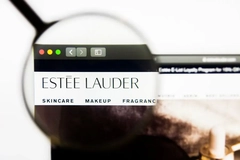Northern Ireland joins other regions in banning plastic-containing wet wipes

At the beginning of this month, Northern Ireland notified the World Trade Organization that it intends to ban the sale of wet wipes containing plastic.
The regulation targets single-use wet wipes, including those used in personal care products, such as baby wipes, facial wipes and sheet masks. These products break down over time into microplastics, harming human health and disrupting ecosystems.
Personal Care Insights speaks to Chiara Lai, a member of Obelis’ Regulatory & Innovation Department and COSlaw contributor, about the upcoming ban in Northern Ireland and other measures being taken across regions.
Northern Ireland’s regulation is part of a broader UK initiative to phase out wet wipes that contain plastic. The objective is to reduce single-use plastic litter and its adverse impacts on people and the environment. The UK and Devolved Governments have banned microbeads in rinse-off personal care products.

“The UK ban on wet wipes is part of a broader trend toward reducing plastic waste. Scotland has already implemented measures such as banning plastic-stemmed cotton buds. These plastic bans will likely transform how people consume personal care products and a wide range of other goods,” Lai tells us.
She predicts that similar regulations will be introduced across the UK and that it is “highly probable” that other countries will follow. She also highlights that the initiative originates from public interest and demand. Plastic-containing wet wipes can create microplastics in the environment which have been shown to be harmful.
Plastic-containing wet wipes can create microplastics in the environment which have been shown to be harmful.
“Beyond broader environmental concerns and an increasingly eco-conscious public, plastic products have been the focus of campaigns highlighting their role in causing hundreds of thousands of blockages in the UK sewer system, costing millions of pounds annually. Given this context, it is reasonable to assume that consumer reaction will be largely positive.”
Lai continues that the ban is part of a broader plan to improve water quality in England, where “no river or waterway is currently considered clean.”
Public support
The regulations make it an offense, with penalties, including fines, for businesses to supply wet wipes containing plastic to consumers. However, the law includes exemptions where no alternative exists, such as:
- Registered pharmacies: Pharmacies are exempt under strict conditions and encouraged to hide plastic-based wipes from customers’ view and only provide them upon request.
- Medical use: The regulations permit the supply of plastic-based wipes for medical purposes or when dispensed by health care professionals.
- Business supply: Plastic wet wipes can still be provided to businesses.
According to the Scottish Government, the UK retail revenue from wet wipes in the Personal Hygiene sector was 210 million at the “high” point in 2021. Cosmetic wipes are generally the most expensive, while child care and personal hygiene wipes are the cheapest.
“The ban follows a consultation held late last year, which revealed overwhelming public support for the measure,” says Lai.
As part of the larger ban, the Department for Environment, Food and Rural Affairs (Defra) launched a UK-wide consultation in October 2023, seeking input from stakeholders on the impact of banning plastic wipes. The results showed that 95% supported a complete ban.
The UK legislation is set to be introduced across all four nations and is expected to be ready by the end of this year, with the ban taking effect 18 months later in mid-2026.













